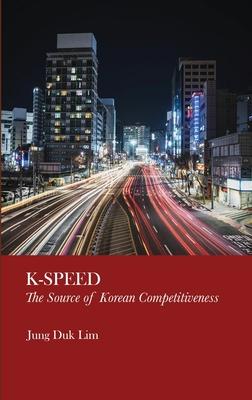Korea was one of the poorest countries in the world up to the mid to late 20th century, but within less than half a century she emerged as an economic and cultural powerhouse. The US and World Report recently ranked Korea as 6th in global power. In terms of GNP and per capita income Korea became one of the most advanced countries in the world. This has been dubbed as the 'Korean Miracle'. There may be several factors that could explain this outcome and this book argues that one of the most compelling reasons is the concept of speed in Korean society and its people, which is quite different from other countries. This take on speed can be considered from the perspective of anthropological and/or social DNA, tradition, cultural heritage. Therefore, this book names 'K-speed' as an unexpected factor which brought on the so-called 'miraculous' Korean economic growth.
This book belongs to the field of economic development theory and applications. Written in an empirical and descriptive format, the book provides insights into economic and cultural development for students and scholars in international affairs, economics, politics, business, and Asian studies. Governments, international agencies and senior staff in large organizations will also find this book a useful reference.
